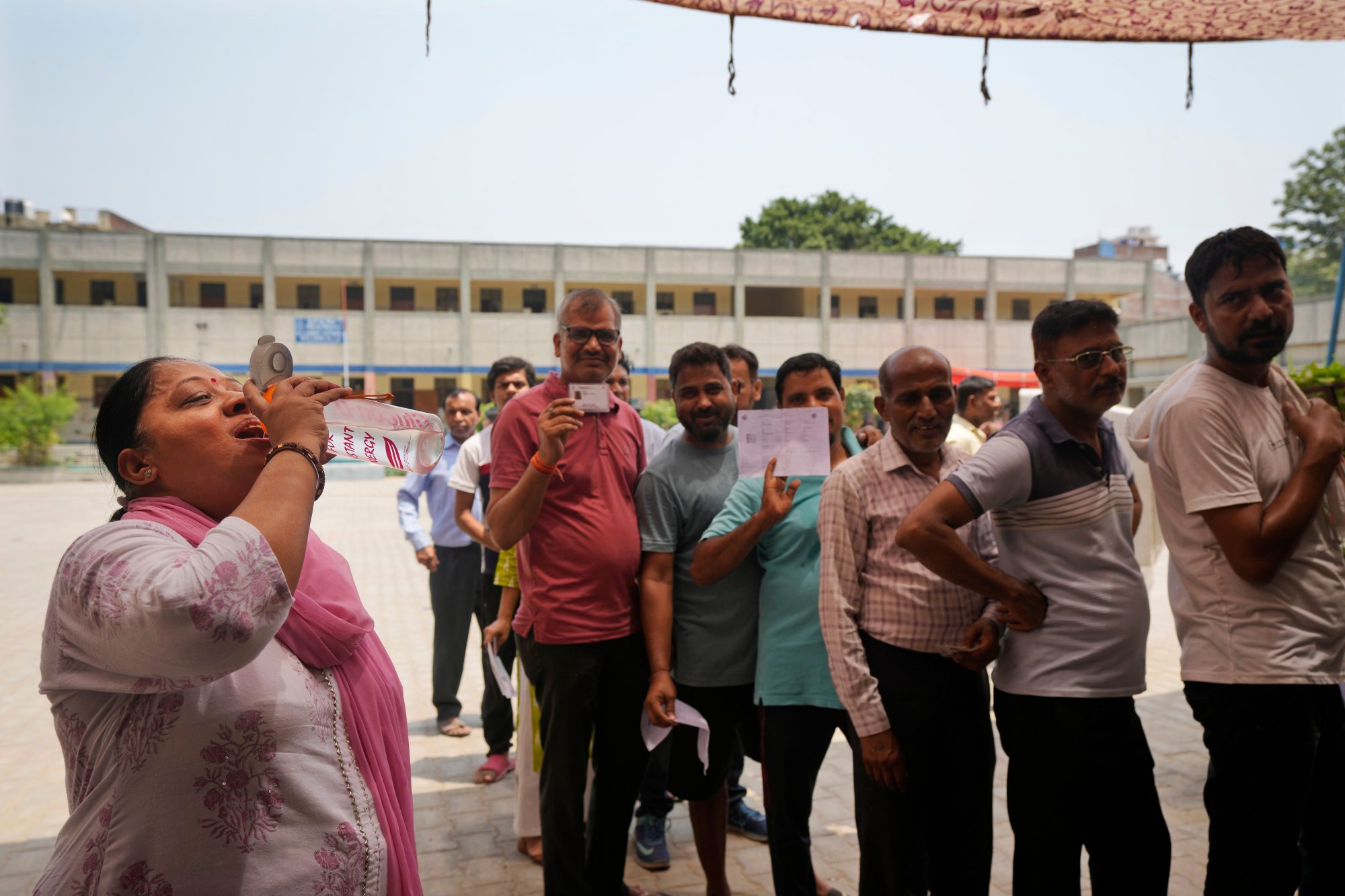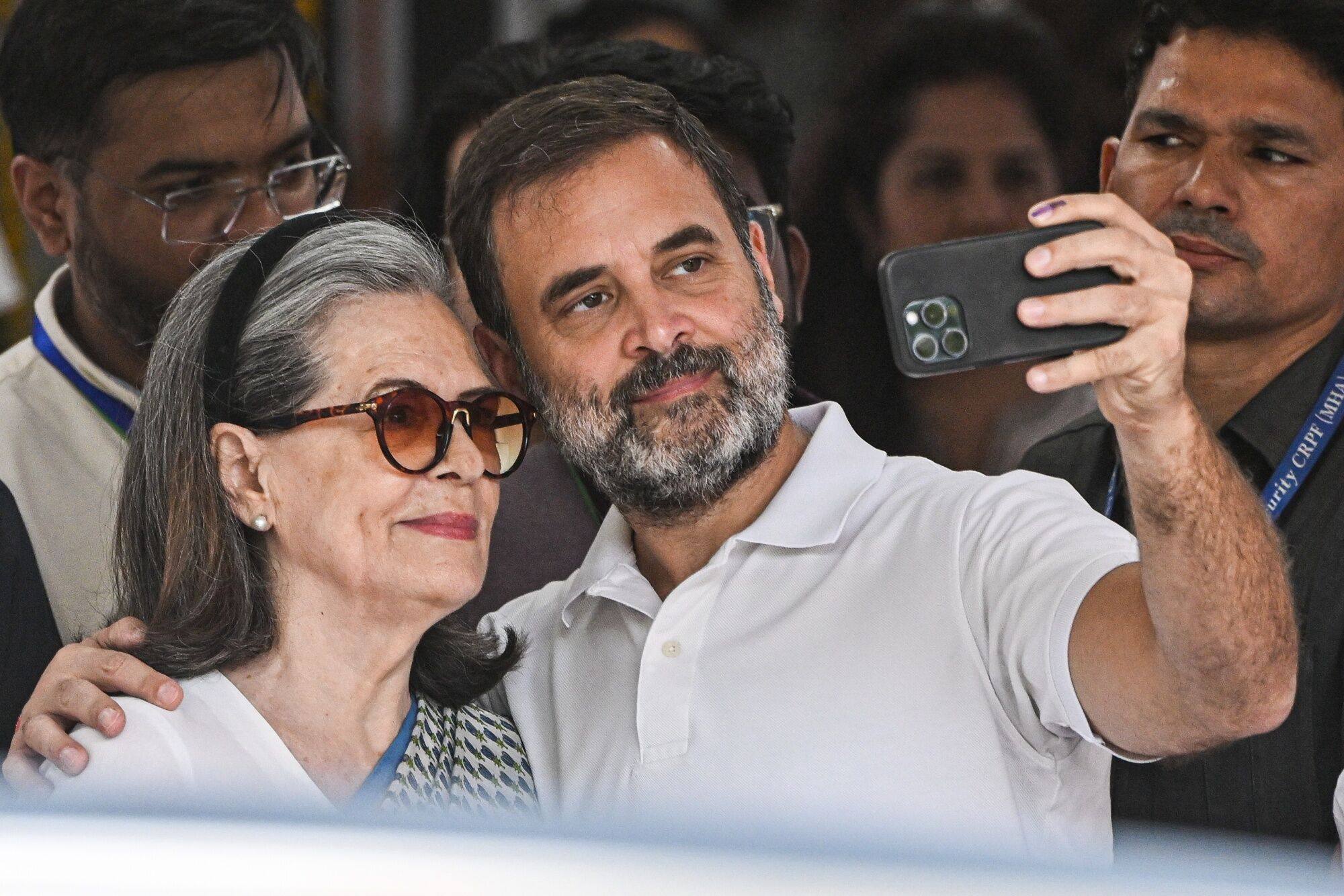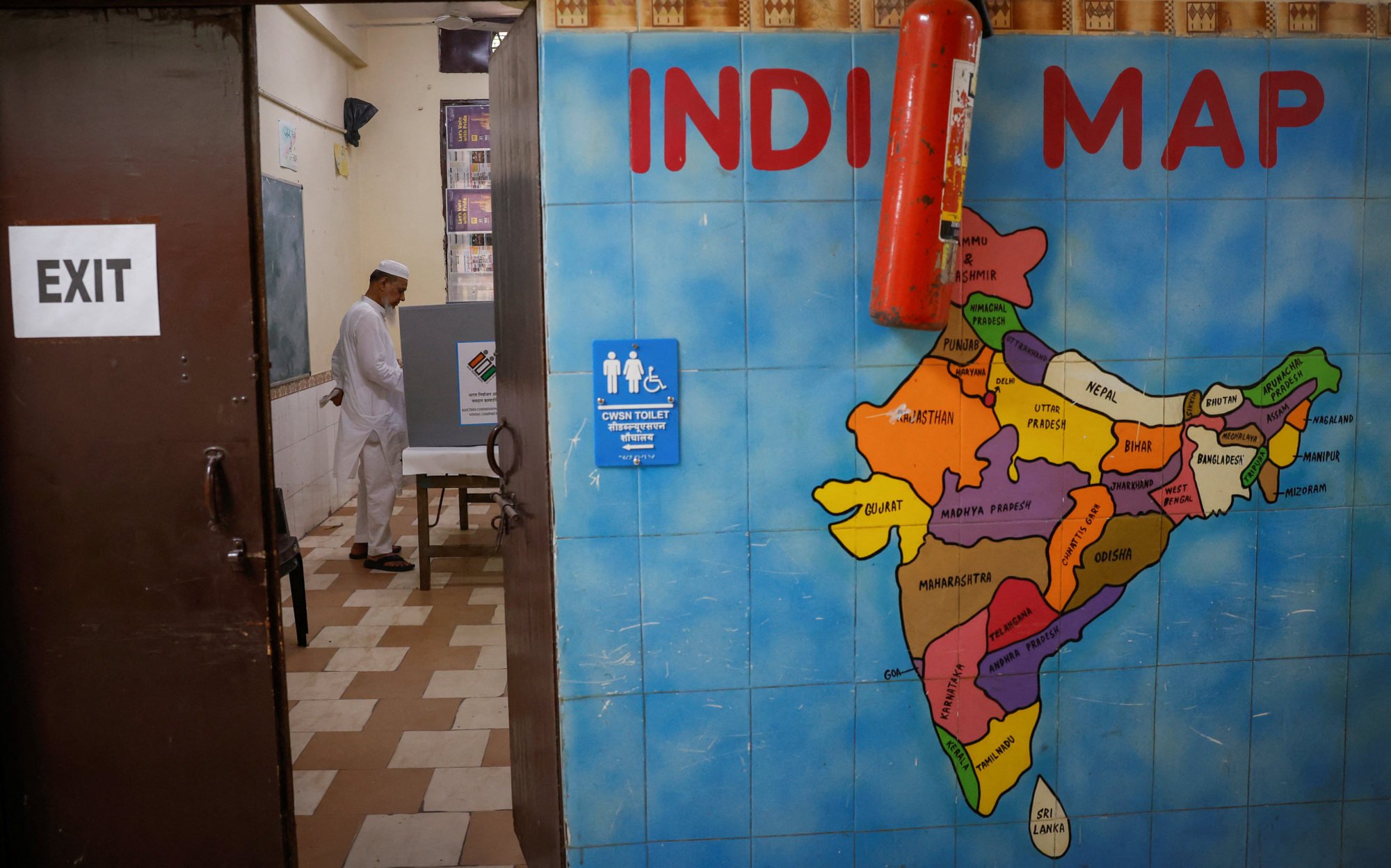
India election resumes as Modi ‘ramps up anti-Muslim rhetoric’ over opposition gains
- Prime Minister Narendra Modi has accused the opposition Congress party of pandering to minority Muslims for votes
- The penultimate round of the election is happening amid blazing heat across India, with the temperature hitting 43 degrees Celsius in New Delhi
Many people lined polling stations before the start of voting at 7am to avoid the blazing sun later in the day at the peak of Indian summer. The temperature soared to 43 degrees Celsius (109.4 Fahrenheit) in the afternoon in the Indian capital.
Lakshmi Bansal, a housewife, said while the weather was hot, people usually went out to shop and even attended festivals in such heat.
“This [election] is also like a festival, so I don’t have a problem voting in the heat,” Bansal said.
Saturday’s voting in 58 constituencies, including seven in New Delhi, will complete polling for 89.5 per cent of 543 seats in the lower house of Parliament.
The voting for the remaining 57 seats on June 1 will wrap up a six-week election. The votes will be counted on June 4.

Mehbooba Mufti, a former top elected official of Indian-controlled Kashmir, held a protest with her supporters Saturday claiming that scores of her party workers were detained by the police to prevent them from voting. The chief of the People’s Democratic Party contesting the parliamentary election in the Anantnag-Rajouri district said she complained to election officials.
In West Bengal state, workers belonging to the All India Trinamool Congress party, blocked the car of Agnimitra Paul, one of Modi’s Bharatiya Janata Party candidates, as she proceeded to vote in the Medinipur constituency. The two parties are rivals in the state and their workers often clash on the streets.
A less-than-expected voter turnout in the previous five rounds of voting seems to have left both sides guessing about the elections’ outcome.

Election authorities said they were taking steps to ensure voters’ comfort, such as setting up fans and tents and providing drinking water.
Most polls predict a win for Modi’s Hindu nationalist Bharatiya Janata Party, which is up against a broad opposition alliance led by the Indian National Congress and powerful regional parties.
Modi was involved in a highly acrimonious and mudslinging campaign with the opposition, led by Rahul Gandhi, the scion of the Nehru-Gandhi family that has produced three prime ministers.
“When the polls began it felt like a one-horse race, with Modi leading from the front. But now we are seeing some kind of shift,” political analyst Rasheed Kidwai said. “The opposition is doing better than expected and it appears that Modi’s party is rattled. That’s the reason you see Modi ramping up anti-Muslim rhetoric to polarise voters.”
Kidwai said the opposition had challenged Modi by centring its campaign narrative on social justice and rising unemployment, making the contest closer than expected.

Modi ran his campaign like a presidential race, a referendum on his 10 years of rule. He claimed to help the poorest with charity, free healthcare, providing toilets in their homes, and helping women get free or cheap cooking gas cylinders.
But he changed tack after a poor turnout of voters in the first round of the election and began stirring Hindu nationalism by accusing the Congress party of pandering to minority Muslims for votes.
Hindus account for 80 per cent, and Muslims nearly 14 per cent, of India’s over 1.4 billion people.
Manish Bhatia, a New Delhi voter, said that “politics on the basis of caste and religion is dangerous for the country,” adding that voting should be based on how candidates perform.
Nearly 970 million voters – more than 10 per cent of the world’s population – were eligible to elect 543 members to the lower house of Parliament for five years.

